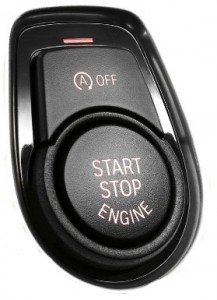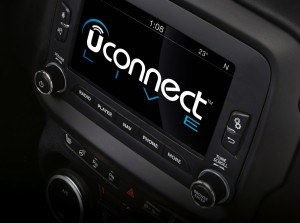 Top Class Action Lawsuits
Top Class Action Lawsuits
Were Car Makers Keyless & Clueless? Heads up—Anyone with a keyless system for their Toyota, Ford, Nissan, Honda, BMW, General Motors, Volkswagen, Mercedes-Benz, or Hyundai—a defective automotive class action lawsuit has been filed against these car makers alleging that a flaw in the design of keyless fob systems has led to 13 documented deaths from carbon monoxide poisoning. The plaintiffs estimate that at least 5 million vehicles are affected by the alleged defect. Got that? Read on.
According to court documents filed in California court this week, the plaintiffs claim that reasonable drivers misunderstand that keyless-ignition fobs do not turn their vehicles engines off. Further, the cars don’t have a safety mechanism to automatically turn off the engine after it’s been left idling for a set amount of time. When the car engines are left running in owners’ garages, it can lead to in an increased risk of carbon monoxide poisoning.
“As a result, deadly carbon monoxide, often referred to as the ‘silent killer’ because it is a colorless, odorless gas, can fill enclosed spaces and spread to the attached homes,” the plaintiffs said. “The results have been at least 13 documented deaths and many more serious injuries requiring hospitalization, all from carbon monoxide poisoning.”
According to the keyless ignition fob lawsuit, in cars that use traditional keys, the engine can no longer operate once it’s removed from the vehicle. By contrast, keyless-ignition fobs can remotely turn on the engine, but have nothing to do with turning off the engine. Therefore, drivers can park their cars and exit with the keyless fob and still leave the engine running no matter how far the fob goes from the car.
The lawsuit alleges the defendants and their research and design companies installed the keyless fob systems without instituting proper safeguards and warnings.
Further, the plaintiffs contend that the lack of an auto-off feature is not mentioned in the car manuals, therefore failing to warn of the risk for carbon monoxide poisoning. The cars have no audible warnings alerting drivers that the engine is still running.
The plaintiffs assert that individuals personal injury lawsuits have been filed over the lack of an auto-off feature, resulting in confidential settlements. Similarly, consumers have filed complaints with the National Highway Traffic Safety Administration. However, the plaintiffs contend the automakers haven’t taken action in response to the complaints.
In fact, the plaintiffs assert that the automakers have known for years about the deadly consequences of drivers’ leaving their vehicles without hitting the start/stop button used in keyless-ignition cars, but that they refuse to act.
The lawsuit states that the auto-off feature is feasible and has already been implemented by some of the automakers. The plaintiffs claim that while some new vehicles are now outfitted with the auto-off system, the automakers are doing nothing to rectify older models or notify drivers about the potential safety risk.
The lawsuit asserts national claims for negligent failure to recall and unjust enrichment, as well as state claims for fraudulent concealment, violation of state consumer protection acts and breach of implied warranty, among others.
FYI—The case is Draeger et al. v. Toyota Motor Sales USA Inc. et al., case number 2:15-cv-06491, in the U.S. District Court for the Central District of California.
Washio Employees File Suit against the App’s Spin Cycle. This week, a potential employment class action lawsuit has been filed against Washio Inc., a mobile laundry application, over allegations it pays its employees below the minimum wage. Further, the complaint claims that Washio misclassifies its standard employees as independent contractors to avoid state labor laws. Washio, Uber, Lyft—are these the new face of employment law violators?
The Washio lawsuit was filed by Akil Luqman, a former Washio employee who worked for the company between March and June picking up and delivering customer laundry. In the lawsuit, he asserts the company paid employees for each customer stop, in violation of minimum and overtime wage laws. Further, he claims the company denied rest and break periods, failed to fully reimburse work expenses and issue correct pay stubs, and classified full-time hourly workers as independent contractors.
The complaint states that Washio’s classification of its employees as independent contractors “was in fact subterfuge by [Washio] to avoid granting employee status” because the company controlled the amount, time and place of the work performed and the level of pay the plaintiffs received.
The complaint also claims that Washio was in violation of California labor law because it failed to pay overtime or provide rest periods and breaks, despite frequently scheduling employees to work more than eight hours in a day and/or 40 hours in a week.
According to the complaint, Washio still operates in violation of state and federal labor laws, and therefore, the plaintiffs are seeking a permanent injunction halting the company’s actions, and an order requiring Washio to provide the names and contact information for all current and former employees that may be included in the proposed class.
Additionally, plaintiffs are seeking unspecified damages related to lost wages, undisclosed withholdings, unpaid overtime, unreimbursed expenses, denial of proper rest and break periods, and legal fees.
Luqman is represented by Kevin T. Barnes and Gregg Lander of The Law Offices of Kevin T. Barnes. The case is Luqman v. Wash.io Inc., case number BC592428, in the Superior Court of the State of California, County of Los Angeles.
Top Settlements
Here’s One for Every Tuna Lover—Sorry—Tinned Tuna Lover. A consumer fraud class action settlement has been reached between Starkist and consumers who alleged the company under-filled some of its 5-ounce canned tuna products by several tenths of an ounce. According to federal law a 5 ounce can of tuna must contain an average of 2.84 to 3.23 ounces of tuna, depending on variety.
According to the Starkist tuna settlement, if you purchased one or more of the StarKist Products between from February 19, 2009 through October 31, 2014, you may be eligible as a class member:
One or more 5 oz. can of Chunk Light Tuna in Water,
One or more 5 oz. can of Chunk Light Tuna in Oil,
One or more 5 oz. can of Solid White Tuna in Water, or
One or more 5 oz. can of Solid White Tuna in Oil (collectively, the “StarKist Products”)
Class Members who wish to file a claim must complete the appropriate form online or by mail, which must be postmarked no later than November 20, 2015 in order to be considered for benefits.
To file a claim and learn more about the settlement visit https://www.tunalawsuit.com
Ok—That’s a wrap folks…See you at the Bar!



